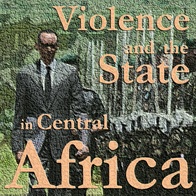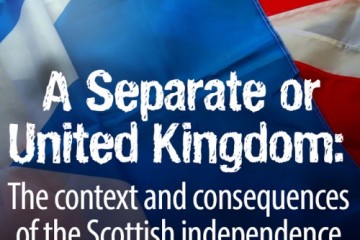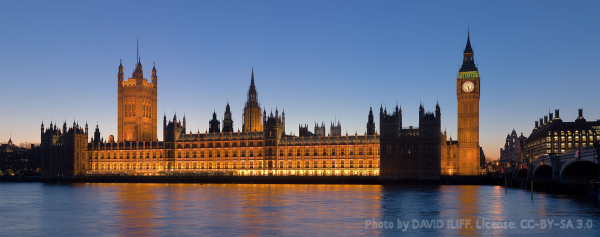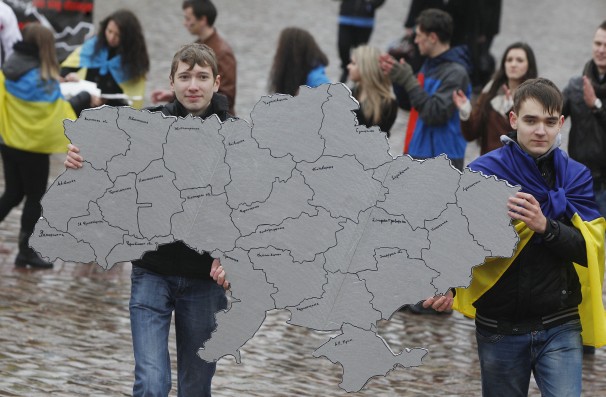
How civil wars end
There is a tendency, even among scholars, to view civil wars as involving two actors—the “government” and “rebels.” This presumption likely arises because historical civil wars that have received the most attention—such as the American and Chinese civil wars—were generally fought between two recognized, organized combatants. Yet, many civil wars (both historical and modern) involve more than two actors.
Take the current civil war in Syria. The Syrian government battles a series of rebel groups that generate a large number of acronyms—ISIS, SLA, SIF, and so on—and that frequently fight amongst themselves. These groups often seek to form coalitions to coordinate their opposition, but the coalitions are unstable and have difficulty controlling their constituent parts. The Syrian conflict also has a large level of external involvement, with the government receiving direct military support from Iran and Hezbollah plus a large number of additional external states and non-state actors seeking to turn the course of the war.
The Syrian opposition’s fragmentation is extreme, but the multiparty nature of the conflict is by no means unique. In fact, many of the wars that have received the most international attention in recent decades—such as in Afghanistan, Columbia, the Democratic Republic of the Congo, Iraq, the Palestinian conflict in Israel, the Darfuri war in Sudan, and Somalia—have involved several rebel groups and significant external involvement.

Alternatives to fixed-term elections
Until the present coalition government introduced the Fixed-term Parliaments Act, in 2011, the UK Prime Minister had discretion to call elections at will, a power often used for partisan advantage. As Petra Schleiter reports in her recent post on Politics in Spires, 60% of the UK’s post-war elections were called early (i.e. more than six months before required). Further, her analysis suggests that this gave incumbents a 6% vote gain, roughly doubling the PM’s chances of remaining in office.
The Fixed-term Parliaments Act allows early elections to be called only in very restricted circumstances (either with support of two-thirds of the House of Commons or following a vote of no confidence after which no alternative government is approved by the Commons within 14 days). Schleiter points to a number of advantages of this; not only does it stop PMs from calling elections opportunistically, in order to increase their chances of victory, but depriving them of this power also prevents them from using the threat of an election to bully backbench MPs or coalition partners, thereby making the government more accountable to parliament.
However, in focusing on the advantages of fixed-term elections, Schleiter does not consider whether there are certain advantages to the old system, in which an election could be called at any moment.

Matteo Renzi’s PD eight months later: where now for the Italian left?
Leading the Italian left has never been an easy task. After the collapse of democratic centralism (i.e. the Leninist practice which obliged the membership to uphold any leader’s decision following an internal discussion), leadership has soon become the Achilles’ heels of the Italian former communists. Party secretaries have been weakened by the rising power of internal factions, used as scape-goats after electoral defeats and blamed for both lack of charisma (Pierluigi Bersani) and excessive protagonism (Massimo D’Alema and especially Matteo Renzi himself).
Moreover, the presidential leadership style of its eternal enemy, Silvio Berlusconi, made the Italian PD (Democratic Party) rather unenthusiastic toward the trends of personalisation and presidentialisation spreading all over Europe. It is not by chance that the Berlusconian model always comes up when discussing Renzi’s personality and politics. Internal opponents and critical observers denounce Renzi’s simplified language and slogans, as well as his post-ideological appeal and charismatic governance. He is even often described as the son of Berlusconi, in the same way that Tony Blair was once called the son of Thatcher.
Albeit controversial, Renzi’s personalized approach seems to have played a key-role in his rise to power. Studies conducted among the delegates at the 2013 Party Conference show that the party’s majority backed him in virtue of his personal characteristics and leadership skills rather than political message. Moreover, whereas the 2012 delegates expected the at-that-time-leader Bersani to promote a process of identity reconstruction and grassroots’ institutionalization, the 2013 Conference asked Renzi for concrete strategies to win the next General Elections (Martocchia Diodati 2014).

City-regional small nations beyond nation-states
With separate histories and political-cultural traditions, the UK and Spain do not have the same nation-state DNA. Yet both face issues over regional independence. While the UK Government has legitimised the Scottish Government and supported the Scottish Independence referendum as a highly democratic exercise, Spain stands out as remaining normatively inflexible without, so far, even contemplating any dialogue with the presidents of the Catalan and Basque Autonomies.
Other EU nation-states accept the UK’s approach to sort out regional and nationalistic claims democratically. But Spain has been avoiding the demands of the Catalan and Basque institutions and citizens on the basis of both historic and more recent episodes of political unrest. As a result, it seems impossible to open any discussion about the devolution claims of city-regional small nations, particularly in terms of devising an internal, alternative and re-scaled configuration of Spain as a nation-state, which would involve modifying the 1978 Constitution. In the case of the Basque Country, this is presented as the least likely outcome as political violence in the region has been both a major obstacle and also a source of inertia. Nevertheless, ETA (Euskadi Ta Askatasuna)[1], announced a ‘definitive cessation’ of its campaign in 2011 and, therefore, should welcome any kind of democratic implementation that involves devolving powers to the Basque Country.
But are there any remarkable differences between EU nation-states such as the UK and Spain?
Indeed, I think there are plenty of them.
The Geopolitics of Culture: Five Substrates
Culture has a salient geopolitical relevance in a world that defines itself by much more than diplomatic exchanges and inter-state relations. This is primarily because of the deeply visceral and emotional connotations associated with identity issues. This has been the case throughout history, as exchanges have taken place between people of different cultures for millennia, but today they are marked by unprecedented intensity and scope of relations. This offers great opportunities on a number of levels but also has the potential to initiate tension or conflict when combined with injustice, inequalities and insecurities.
Cultures are cognitive structures that shape how people view themselves, relate to the world and to each other. As I have explained in my theory “emotional amoral egoism”, human beings are motivated above all else by emotional self-interest. This includes ego, which entails negotiating between inner needs and social context and which requires a sense of belonging and a positive identity. Identity performs its functions by drawing boundaries. If the social context precludes a stable and positive group identity– for instance, because of being negatively defined by others – people are more likely to generate a resistance identity, with boundaries that appear impermeable and safe, or by engaging in identity construction that can lead to xenophobia, rigid ethnocentrism, or forms of ideological radicalism. Because of the emotional nature of identity issues, identity construction has to be authentic to each group itself and will be rejected if defined by others.
Having a positive group identity and self-identity does not have to imply denigrating difference, even if one’s own group is ultimately preferred. I would even argue that cultural and ethnic diversity can be thought of as benefiting humanity’s future, survival, strength and excellence. It promotes what I call cultural vigor similar to the way in which molecular and genetic diversity promotes “hybrid vigor” in nature and thus strength, resilience and a higher potential for a problem-free future. However, in order to yield such productive results, cultures and sub-cultures need to evolve in a non-exclusive manner in a context of transcultural security.

Central Government Makeovers
Have repeated ‘makeovers’ created a government machine in the UK that works better and costs less? Or has a relentless focus on cost-cutting damaged traditional administrative values? In a wide-ranging study of UK central government, we found that not only did formal complaints and legal challenges to central government rise sharply over the three decades up to 2010, but government administration costs also increased by two-fifths in real terms – even though the civil service lost a third of its staff. They conclude that traditional headcount reduction measures do not guarantee a reduction in costs and may lead to more complaints and challenges. We question why government makeovers so rarely start by carefully identifying what citizens actually complain about.

Avoiding Africa’s oil curse
East Africa is the global oil and gas industry’s hottest frontier. Barely a month goes by, it seems, without a major discovery in Mozambique, Tanzania, Uganda, or the eastern Democratic Republic of the Congo.
This new African windfall is hardly without precedent. Several west and central African states — most notably Angola and Nigeria — have already experienced petroleum booms of their own. Over the last decade, they benefited from a spectacular jump in oil prices, which rose from $22 per barrel in 2003 to $147 per barrel in 2008 and remained high, for the most part, until recently. The spoils were enormous: from 2002 to 2012, Angola’s GDP jumped from $11 billion to $114 billion and Nigeria’s went from $59 billion to $243 billion.
The opportunity afforded by this extraordinary decade was unprecedented and is unlikely to recur. Sadly, however, decision-makers have mostly squandered it. If the new east African producers are not to repeat the mistakes of the established ones, then, they should heed the lessons of Africa’s last oil boom.

Building a federal Ukraine?
The idea of a remaking of Ukraine’s constitutional order along federal lines is beginning to gain traction. On March 18, Ukrainian Prime Minister Arseniy Yatsenyuk reached out to Russophones in the eastern and southern regions, announcing that “new measures linked to decentralization of power will be reflected in a new constitution.” Senior U.S. administration officials have encouraged the Ukrainian leadership to consider constitutional reform along federal lines.
On March 17, the Russian Foreign Ministry proposed the establishment of an international “support group” to manage the crisis. The list of items that Russia wants to be the basis for negotiation in Ukraine includes a new federal structure for Ukraine and the recognition of Russian as a second language.
Until recently the federal idea was an anathema among the greater part of Ukraine’s political elite. As a constitutional form it was largely rejected in the 1990s, partly as a negative reaction to the experience of Soviet federalism, and partly from fear of its centrifugal potential for splitting the country along ethnolinguistic fault lines.









